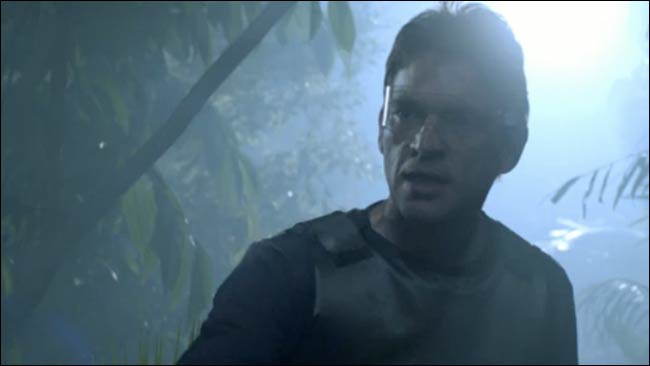Day of the Triffids: How long would the Internet survive, and could you still publish news on it?
When a new TV version of Day Of The Triffids was announced, I wondered how they'd deal with the fact that the Internet and mobile phones had revolutionised person-to-person contact since John Wyndham wrote the novel. Indeed, I began to wonder if, in the land of the blind, the man who already knew how to use the web with JAWS and LYNX might be king. Or at least whether those who had been blind already would now have an enhanced 'first mover' advantage when it came to looting and protecting themselves.
In the end, the new adaptation had a line from the Jo Playton character quite early on, bemoaning that she had no mobile signal, but there was no mention of any residual Internet usage. As the ARPANET origins of the web were in part designed to thwart a cataclysmic attack on the infrastructure of the US, I began to wonder how long the mobile phone network and Internet would last in a world where nearly everybody had been struck blind.

I've asked around a few of my more knowledgeable techie friends, and opinion varied from a quite optimistic few weeks, to a pessimistic less than a couple of hours. On the assumption that major datacentres would trip over onto some backup power when the national grid failed, and that some ISPs and mobile networks would also have resilience, the key issue seemed to be whether you would still be able to get power into all of the links along the chain. And whether some newly blinded sysadmin had inadvertently pulled all of the cables out of their sockets.

It also got me thinking about broadcast continuity for news services on the web. There is a well established tradition of radio and TV broadcasters preparing for a doomsday scenario - indeed I seem to recall that the BBC archive in Windmill Road was capable of playing out directly to the broadcast chain so the nation could be entertained with morale boosting repeats in the event central London was wiped out in a nuclear attack. In one of Wyndham's other 'cosy catastrophe' novels, "The Kraken Wakes", radio broadcasts from the EBC are a key part of the narrative, but unlike in the recent adaptation, I don't recall TV or radio playing much of a role in the novel of "Day Of The Triffids".

So, what would digital era newspapers do in this kind of scenario? Would staff, sighted or not, still be able to access their CMS to publish emergency information for the public? Even if they could, would anyone be able to access it? In short, if the "Day of the Triffids" unfolded today, how long would the Internet survive, and could you still publish news on it?
The Straight Dope has a fascinating, albeit American article about how long electricity would last in the event of a catastrophic global disaster. They pick zombies as an example, but the theory still seems sound.
The problem seems to be more with the transmission grid than the generation of power, so they say: "within 4-6 hours there would be scattered blackouts and brownouts in numerous areas, within 12 hours much of the system would be unstable, and within 24 hours most portions of the United States and Canada, aside from a rare island of service in a rural area near a hydroelectric source, would be without power."
I will also add that in a real catastrophe scenario - as we understandably saw in Haiti and elsewhere - professional people such as doctors, nurses, journalists etc. would give up whatever they were doing right then, in order to search for their loved ones.
I think we still could using it for communication at least in some local restricted function, as the nature of internet itself is conceived to survive a main backbones crash.
I THINK NO OTHER INVENTION CAN CRASH THE INTERNET AS THIS IS THE BEST EVER INVENTION MAN HAS MADE IN HIS LIFE, SO THINKING OF END FOR INTERNET IS WASTE...?
Yes, Rahul, thankfully in the event of a dreadful apocalypse, at least the Internet will still be there SO WE CAN SHOUT AT EACH OTHER ABOUT IT IN CAPS LOCK
Thought provoking article! Sometimes I do get concerned how much society is dependent upon the internet and the way the "web" shapes our perception of the world.
Real-time 24/7 cable television revolutionized politics. We're still undergoing the changes of the internet.
Having read the book & own the BBC 80's version I have often wondered this myself.
.....toothpaste?
It would be an interesting scenario to see how well the Internet survived in such a situation.I think that, as the supposed Millenium bug proved, concern about the Internet failing would be unfounded, as like the Triffids, it now has very large roots!
Indeed Martin! ...ARGH! TRIFFID! :-)
A very insightful article. I don't think much would last long if we as a human race had been blinded.
I can see it now... "Triffids open dating website as new bid to be dominant species!" LOL
C.
The question should be how long would the power grid survive. Yes the main hubs may have power back up however, it takes three components for successful transmission a: sender, receiver, and a mode of transmission. If any of the three are down, the internet does not work. If there was an event big enough to shut down the internet, there would be bigger problems to deal with like food, water, shelter, and defense
John B, I reckon my wife would testify that I'd be fiddling around trying to get the Internet working again rather than be out usefully foraging for food...
I loved the original and have often thought about how so much relies on the internet would it not be an ideal target for terrorist attacks. Society is so dependent on it chaos would follow ..
Seriously? There are people that would break into cold sweats without the internet?
I know I use the internet far more than I need to, that's a given. But there are so many other things that could be done. So I'd probably be a little miffed, but after long enough, it wouldn't be so big of a deal.
Hey Martin
Assuming the internet is still there perhaps people could keep posting news, but would they ? I remember reading about a civil service report that predicted anarchy would break out when a typical family could no longer feed their family for three consecutive meals. In the Triffid scenario I think one's motivation would simply be to survive ie stockpile food, buy strong weedkiller and build a high wall :) But it raises another question along the falling tree in the wood scenario. If you blog on the internet that you are being attacked by Triffids and noone ever reads that post, does it even exist ?
cheers
Chris
hi.
this is my favorite sort of topic - because you could look at it from 100 different directions. And i am a sci fi nut.
Just imagine what John Wyndham would write about today. But we would actually find ourselves sitting around fires again, and actually talking. which would be nice.
rob
I’ve always felt that due to increasing technology, great science fiction stories should remain in their period, if possible. Obviously, if you have a 1930 story that plays out in 2100, there’s little you can do other than update it as best you can. However, a story like Day of the Triffids works perfectly well set in 1951 or thereabouts, it’s original time. Why is it that modern storytellers are so unwilling to honor a story, and prefer modernization for the sake of it?
This used to be one of my favorite books back in the days.
Once electricity goes, so will the internet. Datacenters will work on diesel power only for so long and even then, the grid effect will destroy the system. Good ol' radio will save us all, it require little power to transmit, and even less to receive information.
Really fascinating. I think power would fail before communications - but that would knock out most communications. I agree with the above: The radio hams would be kings. There would probably also be a few "off-grid" types who could power up, but I think they would be reliant on satellite communications. Here in the USA you can get satellite internet, which "might" enable some form of P2P, but the web as we know it is reliant on grid power.
Also, given that even local communicators would likely need software in order to connect, and that most of these would not already have such software (and would not be able to obtain it after a power outage), I think most of this would fail too.